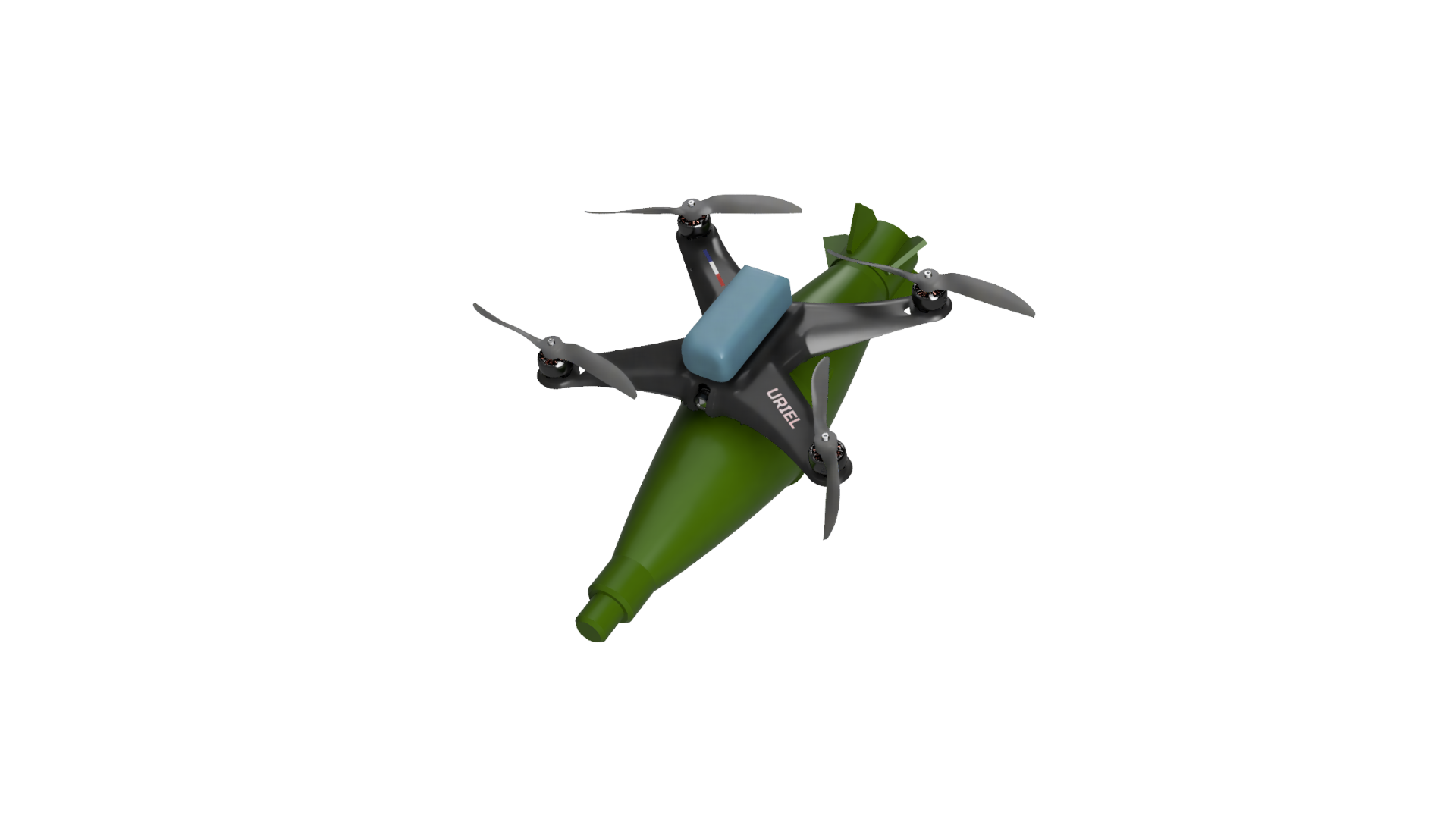Technological advances are profoundly transforming modern military strategies. Among them, remotely operated munitions mark a decisive turning point in the conduct of remote operations. These weapons, often combined with FPV drones, enable precise strikes without directly exposing soldiers to danger.
In modern conflicts, the ability to carry out targeted attacks while minimizing the risk to troops is becoming a key factor. Teleoperated munitions, combining the precision and flexibility of remote human control, are perfectly in tune with this trend. Their increasing use is redefining contemporary conflicts and raising major strategic, operational and ethical questions.
What is remotely-operated ammunition?
A remotely-operated munition is a remotely-guided projectile, usually equipped with a camera and sensors, enabling an operator to adjust its trajectory in real time. Unlike autonomous missiles, these munitions require human intervention right up to impact, offering great tactical flexibility and reducing the risk of accidental collateral strikes.
These weapons can be dropped from FPV drones, conventional aircraft or even launched from the ground. Their precision and adaptability make them particularly valuable tools in modern operations.
Remote-controlled ammunition features
Remote-controlled munitions have a number of key features that explain their growing success in theaters of military operations:
- Real-time control : the operator can adjust the trajectory according to the target's movements.
- Relatively low cost : compared with cruise missiles or guided bombs, these munitions are more affordable.
- Ease of use : FPV drones, which are often used to deploy them, do not require a heavy infrastructure.
- High precision : by avoiding targeting errors with autonomous weapons, they reduce civilian casualties.
Thanks to these advantages, remotely-operated munitions are emerging as an essential strategic tool for the armed forces of the XXIᵉ century.
A booming technology
The use of remotely-operated munitions has intensified in recent years, particularly with the proliferation of FPV drones on the battlefield. Their relatively low cost means that armies, but also non-state groups, have access to striking power once reserved for the great military powers.
The influence of FPV drones
FPV drones play a central role in this evolution. They offer :
- Advanced reconnaissance capability : to identify and track targets before launching an attack.
- Adaptability to complex terrain : in urban areas or rugged environments, drones equipped with remotely operated munitions are particularly effective.
- Greater mobility : they can reach targets quickly and accurately.
This combination of FPV drone and remotely operated munition optimizes the success of strikes while minimizing the exposure of soldiers.
Military applications of remotely operated munitions
Teleoperated munitions offer a number of strategic advantages and are used for a variety of military purposes.
Neutralizingof armoured vehicles
Teleoperated munitions are particularly effective against armored vehicles and tanks. Their ability to adapt in real time to target movements enables them to bypass certain defense systems.
Attacking fortified positions
Armed forces use these munitions to strike entrenched enemy positions, bunkers or strategic buildings. They can infiltrate complex areas where conventional weapons are less effective.
Sabotage of enemy infrastructures
Teleoperated munitions can be used to destroy radars, ammunition depots or command posts. This strategy weakens the logistics and coordination of opposing forces.
An upheaval in military doctrines
The rise of remotely-operated munitions is changing the way armies conceive of their operations. These weapons :
- Favors remote strikes and reduces the need for ground troops.
- Redefine asymmetric warfare by enabling smaller groups to inflict significant damage on more powerful armies.
- Complicate defense by making traditional protection systems less effective in the face of these mobile and precise attacks.
A strategic and geopolitical impact
Remote-controlled munitions are profoundly changing the international balance of power. They enable states or armed groups to carry out targeted attacks with greater effectiveness, thus posing new security and defense challenges.
An increasingly accessible weapon
Their relatively low cost and growing availability make them difficult to regulate. Several nations and organizations are campaigning for stricter controls on their use, to avoid abuses such as their use by terrorist groups.
A challenge for national security
Governments are investing heavily in electronic countermeasures and jamming systems to reduce the effectiveness of attacks using remotely-delivered munitions. Specialized companies are developing technologies to intercept these projectiles before they reach their targets.
Ethical and legal challenges
The increasing use of remotely operated ammunition raises a number of ethical and legal questions:
- Who is responsible for mistakes? Should a remote operator be judged differently from a soldier in the field?
- Is the law of war appropriate? Do these weapons respect the principles of proportionality and distinction between combatants and civilians?
- Can these technologies be banned or restricted? Some experts are calling for international conventions to regulate their use.
These questions become central as their use becomes more widespread on the battlefield.
Industrial and technological challenges
The development of remotely-operated munitions relies on advances in artificial intelligence, data transmission and component miniaturization. Defense companies around the world are investing heavily in these innovations.
A booming industry
The rise of FPV UAV and remotely operated munitions technologies is arousing growing interest in the defense sector. Some countries are seeking to develop their own capabilities in this field, so as not to be dependent on foreign suppliers.
In France, the drone and remote-controlled systems industry is experiencing strong growth, with specialized companies developing advanced technologies. The growth of Drone Français illustrates this dynamic, highlighting France's expertise in the field of drones and autonomous systems.
Remote-controlled munitions are redefining contemporary military strategies. Offering formidable precision, they can engage strategic targets without endangering soldiers. However, their proliferation raises safety, ethical and regulatory issues that will need to be monitored to avoid abuse.
As FPV drones and remotely-operated weapons gain in popularity, the question of their regulation and control becomes essential. Faced with these developments, nations need to adapt their strategies to ensure the controlled use of these new war technologies.
